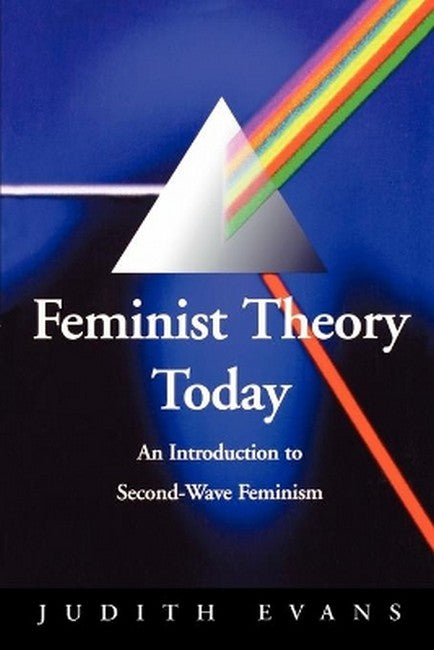Judith Evans is a Lecturer in the Department of Politics at the University of York. She is co-editor (with Jill Hills, Karen Hunt, Elizabeth Meehan, Tessa Ten Tusscher, Ursula Vogel and Georgina Waylen) of Feminism and Political Theory (Sage, 1986).
Request Academic Copy
Please copy the ISBN for submitting review copy form
Description
Introduction Equality and Difference in Feminist Thought Early Liberalism Feminism's First Equality Essential Tensions? Liberal Feminism's Second Stage Radical Equality The Early Fire Cultural Feminism Feminism's First Difference Woman's Kindness Cultural Feminism's Second Face Socialist Feminism From Androgyny to Gynocentrism, Equality to Difference The Postmodernist Challenge The Legal Challenge Conclusion and Afterthoughts
`Those who are interested in issues of equality, sameness and difference...and who have read the Second Wave literature will appreciate Evans's selective and often thoughtful engagement with that literature' - SIGNS `In Feminist Theory Today Evans provides an overview of feminist theoretical writings since the 1960s from a perspective which locates these writings in a deate of particular contemporary resonance - the equality/difference axis. The book is characterized by a careful analysis and an engaging, lively style. Full of questions, it is non-didactic and thought-provoking.... A clear framework for overviewing a large and diverse body of literature is produced by placing the texts discussed into distinct schools of thought and evaluating these schools in relation to the concepts of `difference' and `equality'. The claim is that a tension between these concepts runs in various forms through each of the schools outlined - liberal, early radical, strong cultural, weak cultural, socialist and postmodernist. This is as useful a taxonomy as any I have encountered (and drawn slightly more rigorously than most).... The conceptual axis... is a very topical one, the concepts of equality and difference indeed providing the key focus for current debates within feminist theory. Evans' core claim, that there are two types of equality feminism and three types of difference feminism, is clearly highly schematic but nonetheless convincing and helpful for that. The production of this schema is an invaluable achievement which will no doubt aid many to not only access, but alsocritically engage with, what has ecome a huge and amorphous literature. I shall certainly be recommending it to students in future' - Judith Squires, Political Studies `This review offers only a glimpse of the complexities which Evans addresses in her book. Her writing makes the issues accessible and understandable.... she is addressing particular aspects of the many ways in which feminist theories can be approached and thought about' - Feminism and Psychology `Provides an extremely thoughtful, perceptive analysis and one which is "honourable" in not avoiding or fudging awkward or difficult points. I found myself in strong agreement with many of its conclusions' - Government and Opposition

